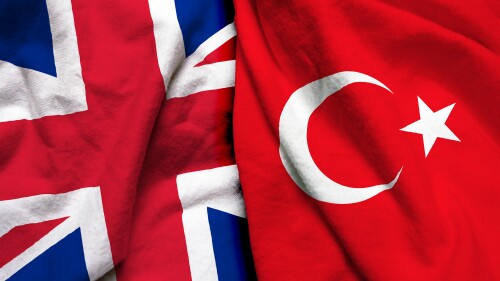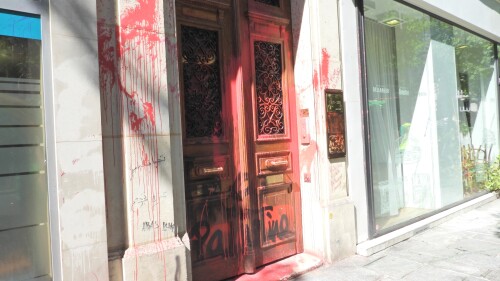France’s approach to defense exports, especially fighter aircraft, has long favored industrial reach and diplomatic flexibility over strict end-use control. Once seen as deft statecraft, this policy now arms U.S. adversaries and undermines the security of America’s closest partners—notably, Greece, Cyprus, Israel, and Taiwan.
A striking case is Turkey’s cooperation with Qatar. Ankara has accelerated training of its F-16 pilots and S-400 operators to counter the Hellenic Air Force’s Rafales, using six Qatari Rafale DQ/EQ fighters deployed to Turkey. Similar instruction continues in a joint Turkish-Qatari squadron in Qatar. By allowing a close French defense customer to expose Rafale performance and signatures to a state threatening a NATO ally, Paris again demonstrates the danger of its permissive export policy.
The problem is not new. In the 1980s, France sold Mirage F1EQs to Saddam Hussein, aircraft later used against U.S. and coalition forces during the 1990-91 Persian Gulf War. That experience should have imposed restraint. Instead, Paris continued granting export terms that permit third-party training and technology transfers benefiting regimes hostile to Western interests.
Paris continued granting export terms that permit third-party training and technology transfers benefiting regimes hostile to Western interests.
The United Arab Emirates’ Mirage 2000-9s illustrate the risk. Because Washington’s end-use rules limited Emirati F-16E/Fs, Abu Dhabi relied on its less-regulated Mirages for combat and international exercises. In 2023–24, Emirati Mirages joined drills with China’s People’s Liberation Army Air Force, exposing Chinese pilots to Western radar and sensor technology—the same used by Taiwan’s Mirage 2000s. No French restriction prevented it.
Qatar’s Rafale operations opened another path of exposure. Qatari Rafales trained with Pakistani J-10CPs and JF-17s; Pakistani pilots reportedly flew in Rafale back seats and practiced air combat. When India and Pakistan clashed in May 2025, Pakistan claimed multiple kills, and open-source evidence confirmed at least one Indian Rafale loss. Training that familiarized J-10 crews with Rafale performance clearly shortened Pakistan’s learning curve.
A parallel risk is unfolding in Turkey. Since Greece fielded Rafale DG/EGs, Aegean airspace violations have fallen—a result of Rafale sensors and weapons reshaping the regional balance. Rather than de-escalate, Ankara is preparing to counter them by expanding advanced training and courting Eurofighter Typhoons. Absent French clauses restricting such familiarization, operators can build playbooks to defeat the Rafale—eroding Greek deterrence and endangering NATO stability in the Eastern Mediterranean.
Further trouble looms as Paris prepares to deliver Rafales to the United Arab Emirates. Given Abu Dhabi’s record of deploying French jets in politically sensitive theaters and its deepening ties with China, the risk of People’s Liberation Army Air Force exposure to Rafale-class systems is real. Any data China gleans can flow quickly—to Russia through defense exchanges, to Pakistan through doctrinal cooperation, and into counter-Rafale tactics that could threaten India’s fleet and even European operators in a NATO-Russia contingency.
For Israel, the effects are indirect but serious. French permissiveness strengthens states and proxies hostile to Jerusalem by spreading counter-Rafale and counter-Western tactics. For Greece and Cyprus, the costs are immediate: Turkey’s accelerated learning curve narrows the Rafale’s deterrent margin and complicates Aegean air policing. For Taiwan, People’s Liberation Army Air Force familiarity with Mirage systems shortens timelines for effective counters. And for the United States, allied airpower advantages—often built around French aircraft in mixed coalitions—become less durable.
Washington should prioritize partners who maintain strict end-use controls in Foreign Military Sales and export coordination.
Washington need not alter France’s ideology, but it must apply leverage that matters. Congress can direct the Pentagon and State Department to condition U.S.-French defense cooperation on end-use reciprocity: If French exports are exposed to adversary militaries or used to train forces likely to confront U.S. allies, France should face delayed access to U.S. software loads, integration kits, and combined test ranges that sustain Rafale interoperability with American systems. The same principle should govern intelligence sharing and exercises—participation in advanced air-combat training and Intelligence, Surveillance, and Reconnaissance cooperation must depend on France enforcing “no-exposure” rules on its exports.
Financial and industrial incentives can reinforce this pressure. Washington should prioritize partners who maintain strict end-use controls in Foreign Military Sales and export coordination. Congress can require State and Treasury to review French third-party training incidents for potential sanctions exposure when they materially aid adversarial air forces—just as Washington could have sanctioned the United Arab Emirates or Pakistan had they misused F-16s. Even without formal designations, compliance advisories and restrictions on U.S. components within French subsystems would signal that permissive exports carry costs.
Finally, NATO should not subsidize the problem. Washington can push for an alliance rule barring aircraft exposed to Chinese or Russian forces from combined missions and data exchanges for a defined period. Such a policy would be neutral in form but felt most by exporters that refuse to police downstream use. If Paris wants continued access to U.S. technology, training, and coalition operations, it must adopt the same discipline Washington demands of its own customers.
Absent that alignment, every new Rafale or Mirage sale risks transferring tactics and signatures to Beijing, Moscow, or their proxies—narrowing the safety margin for Greece and Cyprus, complicating Israel’s defense, and eroding deterrence from the Mediterranean to the Taiwan Strait.







